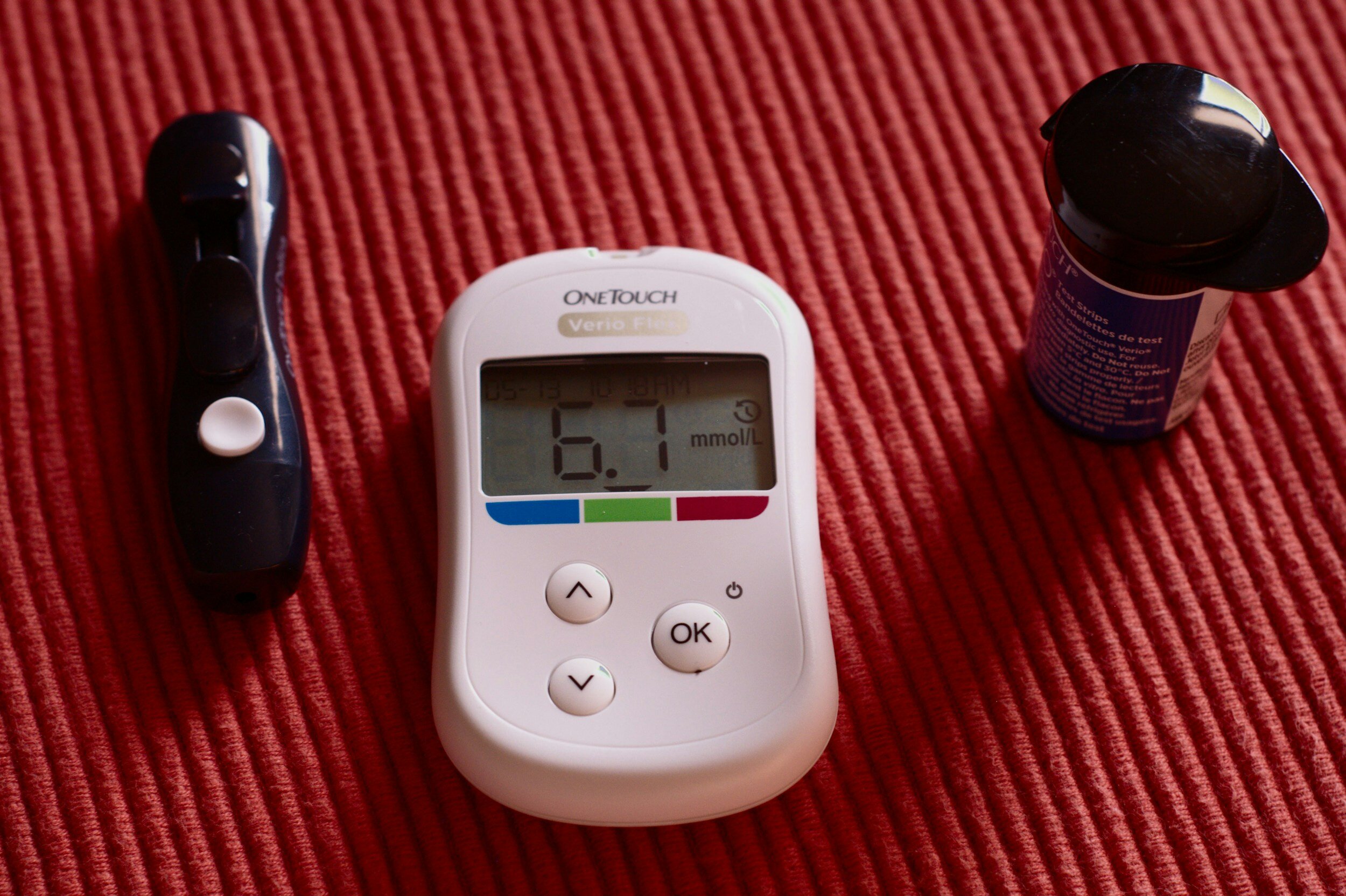
Personal Trainer and Feldenkrais Method Practioner with 20 years Experience in Old Street (Shoreditch) London. One to One and Online.
The Power of Magnesium
Magnesium is an essential mineral that plays a crucial role in numerous bodily functions. From supporting muscle and nerve function to aiding in energy production, magnesium is vital for overall health and well-being. In this article, we will delve into the various health benefits associated with magnesium intake
The Health Benefits of Magnesium
Magnesium is an essential mineral that plays a crucial role in numerous bodily functions. From supporting muscle and nerve function to aiding in energy production, magnesium is vital for overall health and well-being. In this article, we will delve into the various health benefits associated with magnesium intake.
2. Muscle Function
Magnesium is crucial for muscle function and relaxation as one of the essential electrolyte minerals. It helps muscles contract and relax properly, which is essential for activities such as exercise and day-to-day movements. Adequate magnesium levels can help reduce muscle cramps and spasms. If you often get cramp in your feet or toes this can be an indicator of inadequate magnesium levels.
3. Energy Production
Magnesium plays a vital role in energy production within the body. It is a cofactor in the process that generates adenosine triphosphate (ATP), which is the primary energy currency of cells. Ensuring sufficient magnesium intake can help combat fatigue and improve energy levels.
4. Regulates Blood Sugar Levels
Magnesium plays a role in insulin metabolism and helps maintain normal blood sugar levels. Adequate magnesium intake may reduce the risk of developing type 2 diabetes and improve insulin sensitivity in individuals with diabetes.
5. Supports Heart Health
Magnesium is essential for heart health as it helps regulate heart rhythm and muscle function. Studies have suggested that magnesium intake may help lower the risk of cardiovascular diseases, including hypertension and heart attacks.
6. Relieves Anxiety and Promotes Relaxation
Magnesium is known for its calming effects on the nervous system. Adequate magnesium levels can help reduce anxiety, promote relaxation, and improve sleep quality. It is often recommended as a natural remedy for stress and anxiety.
7. Anti-inflammatory Properties
Magnesium has been shown to possess anti-inflammatory properties. Chronic inflammation is linked to various health conditions, including arthritis, heart disease, and certain cancers. Adequate magnesium intake may help reduce inflammation and lower the risk of chronic diseases.
8. Supports Brain Health
Magnesium is important for brain function and cognitive health. It plays a role in neurotransmitter release, which is essential for communication between brain cells. Adequate magnesium levels may help improve memory, focus, and overall brain function.
Why You Should Supplement with Magnesium
Magnesium is an essential mineral that plays a crucial role in various bodily functions. Despite its importance, many people fall short of the recommended daily intake of magnesium.
While magnesium can be obtained through diet from sources like nuts, seeds, whole grains, and leafy green vegetables, Magnesium today is found in smaller quantities in food due to soil depletion. Soil depletion occurs when intensive farming practices reduce the levels of nutrients in the soil, including magnesium.
As a result of soil depletion, the magnesium content in fruits, vegetables, and grains has declined over the years. This decrease is concerning because magnesium plays a crucial role in various physiological processes, including muscle function, energy production, and nerve transmission.
This is a strong reason why supplementing magnesium is important and can be game changing for a persons health, especially with sleep quality and resilience to stress. I recommend 450-600 mg’s per day of either a glycinate, taurate, or threonate type or combination product 45 mins before bed. Other forms such as citrate or oxide are not as well absorbed and may cause some gastric distress.
In conclusion, magnesium is a vital mineral that offers numerous health benefits. From supporting bone health and muscle function to promoting heart health and relieving anxiety, magnesium plays a crucial role in maintaining overall well-being. Ensuring an adequate intake of magnesium through diet or supplementation can have a positive impact on health and may help prevent various health conditions. Consult with a healthcare provider to determine the optimal magnesium intake for your individual needs.
The Physical and Cognitive Benefits of Creatine
Creatine is a naturally occurring compound that plays a crucial role in the production of energy during high-intensity, short-duration activities such as weightlifting and sprinting. While our bodies produce creatine endogenously, it is also obtained through dietary sources such as red meat and fish. However, many individuals, especially athletes and bodybuilders, turn to creatine supplementation to enhance their performance and support their fitness goals. In this article, we will delve into the health benefits of creatine supplementation, debunk common misconceptions, and provide insights into safe and effective usage.
Exploring the Health Benefits of Creatine Supplementation
Creatine is a naturally occurring compound that plays a crucial role in the production of energy during high-intensity, short-duration activities such as weightlifting and sprinting. While our bodies produce creatine endogenously, it is also obtained through dietary sources such as red meat and fish. However, many individuals, especially athletes and bodybuilders, turn to creatine supplementation to enhance their performance and support their fitness goals. In this article, we will delve into the health benefits of creatine supplementation, debunk common misconceptions, and provide insights into safe and effective usage.
Improved Exercise Performance
One of the primary reasons individuals turn to creatine supplementation is its well-documented benefits in improving exercise performance, especially during high-intensity, short-duration activities. Creatine helps regenerate adenosine triphosphate (ATP), the primary energy source for muscle contractions, at a faster rate. This allows individuals to push harder during workouts, resulting in increased strength, power, and endurance.
Research studies have consistently shown that creatine supplementation is effective in enhancing performance in activities such as weightlifting, sprinting, and high-intensity interval training (HIIT). Athletes who incorporate creatine into their training regimen often experience improved workout capacity and faster recovery between high-intensity bouts.
Muscle Growth and Volume
In addition to its performance-enhancing properties, creatine supplementation has been linked to increased muscle growth and volume. By drawing water into muscle cells, creatine promotes cell volumization, which can lead to a fuller and more “pumped” appearance. This increase in muscle hydration can also stimulate muscle protein synthesis, contributing to muscle hypertrophy over time.
Moreover, creatine has been shown to upregulate insulin-like growth factor-1 (IGF-1) expression in muscles, further supporting muscle growth and repair processes. Individuals looking to enhance their muscle mass and strength often find creatine supplementation to be a valuable addition to their nutrition and training routines.
Cognitive Benefits
Beyond its physical performance benefits, creatine supplementation has also been associated with cognitive enhancements. Research suggests that creatine plays a role in brain energy metabolism and neuroprotection, potentially improving cognitive function and memory. Some studies have explored the benefits of creatine supplementation in conditions such as depression, Parkinson’s disease, and age-related cognitive decline, with promising results.
Athletes and individuals seeking not only physical performance gains but also cognitive benefits may find creatine supplementation beneficial in supporting mental sharpness and acuity, especially during demanding training sessions or competitions.
Debunking Common Myths
Despite its well-established benefits, creatine has often been surrounded by misconceptions and myths. One common myth is that creatine is a form of anabolic steroid, which is untrue. Creatine is a natural compound found in our bodies and various foods, and when used responsibly, it is considered safe and legal for most individuals.
Another myth is that creatine causes dehydration or kidney damage. On the contrary, numerous studies have shown that when consumed within recommended guidelines, creatine supplementation is safe for healthy individuals and does not pose a risk to kidney function. Adequate hydration is essential when supplementing with creatine to maximize its benefits and prevent potential side effects like muscle cramping.
Safe and Effective Usage
When considering creatine supplementation, it is crucial to prioritize quality, dosage, and hydration. Opt for reputable brands that provide high-quality creatine monohydrate, the most studied and widely used form of creatine. There are two ways to take it you can begin with a loading phase of around 20 grams per day split into 4 doses for 5-7 days to saturate muscle creatine stores, followed by a maintenance phase of 5 grams per day to sustain elevated creatine levels or you can just take 5 grams per day and you should reach maximum saturation in about 30 days.
Individuals should also prioritize staying hydrated while using creatine to support muscle function and overall health. Consulting with a healthcare provider or a nutrition expert before starting a creatine regimen is recommended, especially for individuals with preexisting medical conditions or concerns.
In conclusion, creatine supplementation offers a range of health benefits, from improved exercise performance and muscle growth to cognitive enhancements. When used responsibly and in conjunction with a balanced diet and proper training program, creatine can be a valuable ally in achieving fitness goals and optimizing overall health and well-being.
Remember, it is essential to approach supplementation, including creatine, with an informed and cautious mindset to maximize benefits and minimize potential risks. As with any dietary supplement, individual responses may vary, so listening to your body and seeking professional guidance when needed are key to leveraging the advantages of creatine supplementation effectively.
By understanding the science behind creatine and adopting a sensible approach to usage, individuals can harness the power of this natural compound to support their fitness journey and enhance their performance levels in a safe and sustainable manner.













